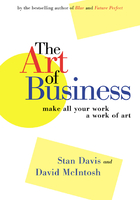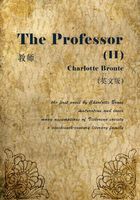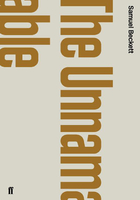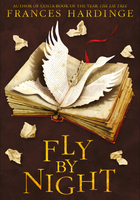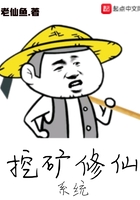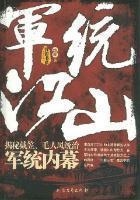Eva had strange dreams. In one she was flying along a straight road on a high plateau. She felt released as if from prison into a world of hot brilliant light and mysterious deep shadows, as if several octaves of awareness had been restored to her being. There was someone else with her, man or woman, she did not know, but just behind her, whom she could not see but who seemed familiar to her from somewhere, like a friend from childhood, or perhaps even before that. In her dream flying seemed the most normal thing to do. After what seemed like a long, exhilarating flight of some miles she landed at the entrance to a ruined shrine or temple. The last thing she remembered before she woke were the engravings of two doves and a snake coiled around a rock. As she awoke, she felt simultaneously the aching gravity of her body and the sense of having been wrenched away from her own core. Eva often dreamed of forests, hills and lakes such as she had seen in Bohemia, and in her waking life she would sometimes turn a corner in Prague, or look at a view out of a particular building, and feel sure that she had been there before. She never had this feeling in England.
One Sunday morning Eva woke up and decided that it was time to turn back into a human being. She had booked herself for the weekend into the Golden Fox Hotel in the Old Town Square in Prague, just across from the Kafka Exposition. On a whim, she had taken a flight after Friday's staff meeting at school. Turning over in her warm bed and rearranging the soft feather duvet in its damask cover, she pummeled the square pillow to refit the shape of her head, feeling sure that Kafka himself would have appreciated the joke. There was the distant sound of a tram singing in its rails, its bell ringing as it turned a corner. As a teacher, Eva had grown alarmingly accustomed to feeling like an insect from a Kafka novel. Kafka was right: people really can wake up one morning and find that they have turned into something that isn't human.
Luxuriating in the Bohemian feather bedding, Eva found herself thinking about her employer, Our Lady of Ransom's, which appeared to have recently been taken over by aliens. Or was she, in fact, the alien? Back at Ransom's school in Newbourne, Eva spent most of her days chasing a tail she didn't have. In a breathless ribbon of working weeks and perpetual time famine, Eva rushed through her teaching day with an invisible yoke round her neck that was growing heavier by the day. She felt as if there was a stone pushing against her breastbone and a hostile hand gripping her heart in a vice. Her distress and panic had become palpable, like a predator colonizing her from the inside out, taking over her inner space, scarcely leaving her room to breathe. It was as if she was serving out a sentence she had pronounced against herself. The paradox was that she loved her work. She lay in bed, turning her Moldavite ring round her finger, thinking.
Here in Prague, ten years ago, she had rediscovered an inner space. Her mother Svetlana had married an RAF pilot during the war and, having left for England, had not visited her home city again until 1990. By this time she was already well over seventy. Travelling with her mother then, Eva had understood something she had only dimly seen before. English people had never been able to pronounce Svetlana's name, and so she had become known to everyone just as "Lana". The name Svetlana means "bright one", but the lost syllable, "svet", means "world". With a single syllable, a whole world had gone missing for Svetlana for over four decades. She had, it is true, become a new creation in England, but at the price of being a curtailed person. How the world loves to snip and trim us, she thought.
This revelation of her mother's unseen world had brought a shift in consciousness for Eva too. She now saw for what it was her mother's pervasive aura of loss, of never being quite "here", of speaking to her as if across an invisible moat filled with loss. As a child Eva had grown to believe that she had done something irretrievably wrong by having been born, and had structured her entire outer persona around the mistaken assumption that it was her mission in life to atone for her mother's deprivations. "Look, Mummy, I've found this glass in the attic: it's a present for you" or, ever the willing, smiling helper: "I'll go outside and fill the coal scuttle for you, Mummy!" This was the person that her world knew as Eva. And yet, as she stood in 1990 with her mother on the Old Town Square, waiting for the medieval astrological clock to strike eleven, she understood for the first time that this person was a fiction and that she was, even to herself, a landscape without a map. Later, as the city's night reflection of spires and golden lights shimmered in the river flowing under the Charles Bridge that spanned the Old Town and the Lesser Town, she saw that she did not know who she was at all, and wondered how it was possible that she had never noticed this until now. This new understanding was both frightening and a relief.
Her mother took her by the arm with a kind, yet strangely resolute gesture that Eva did not associate with her mother's otherwise reticent manner. "Come on, Eva," she said, "I'll show you Novy Svet, the New World." Novy Svet, where Svetlana had lived as a child, was the name of an old quarter of the Lesser Town, on top of the hill behind the Hradcany Castle. It was a steep, meandering climb, past many cafes and restaurants, the haunts of generations of famous artists and writers, and of elegant but unexpectedly intimate foreign embassies, making the world Eva had been shut out from seem suddenly near. Despite the steepness her mother, who knew the way by heart, scarcely seemed to notice the climb and only stopped to reminisce about how that bookshop had been their local baker's, or how beautifully they had done up the Golden Ox Inn. Having seen the flat where the family had lived, they walked slowly back down to the terrace behind the rear entrance to the Castle and looked down over the city.
Eva had felt then as a beggar child might have felt on discovering that she was the daughter of royalty, in this city of kings and Emperors, with its Italian architecture and a national culture as deep as an iceberg. It was as if all her deprivations and uncertainties, her misinterpretations, her vain attempts to expunge a crime that, as it turned out, had never been committed, had only happened in order to bring her to this revelation. From this new perspective, as she looked out over a heritage she had not until now even known existed, her consciousness made an infinitesimal shift, but in doing so crafted a whole new thing of her past, giving it a new shape and colour, just as, had she been a painter, she might have primed a fresh new canvas ready to start a self-portrait from scratch. By embracing a world of shadows only partly her own, she had found a way to light. Although she knew that the person others saw had been no more than a makeshift construction, the very emptiness of her inner space gave her hope, because it affirmed that the space was there. She had discovered that she had the power to live her life backwards as well as forwards.
Taking a deep, slow breath of summer air, Eva led her mother back down the steps. Her mother chuckled. "What we need now," she said, "is a nice glass of beer, preferably Pilsner Urquell. The original and best". Walking back down from the Castle through Neruda Street and back across the Charles Bridge that her mother for some reason always referred to as the Old Town Bridge they meandered their way to a pub just off Bethlehem Square. Later, Svetlana had given Eva an antique ring with a green stone in it. "It is a stone that is unique to Bohemia and Moravia," she said, looking her daughter intently in the eyes, as if waiting for something. It had been at that time that Eva's intense dreams had started.
Eva opened her eyes, now seeing as well as feeling the reassuring solid textures and outlines of the cream damask linen against the dark wood bed, and hearing the discreet bustle of city life under her window. She fancied she could smell dark roasted coffee brewing. She could almost taste the fresh buttered rolls. The astrological clock on the Old Town Square chimed ten. As she rolled over in bed she was reminded of the biblical idea of the fullness of time. The more she slowed down, the more time she seemed to have, until sometimes, as now, she felt as if there were no time at all, as if she had shifted into a state of being that was outside time. This, then, was the first revelation for Eva: that her inner space was not the static, shrunken thing she had once taken it to be, under permanent siege from the enemies of selfhood, but a malleable and expandable universe with hidden mansions, different lands and uncharted continents. It followed from this that it was possible to live a life different from the one she had come to think of as normal, and which she now saw as bordering on the pathological. She responded with a kind of cautious embrace to this discovery that her inner world was even less known to her than the outer one. Over the next few years there followed a strict compartmentalization of its various fragments. There was her "life", or what passed for a life, in England. For this was, as she now realized, the life of a nonexistent person other than herself, whatever that was. This was a life of near hysteria for fear of lapses in work performance, the life of deadlines, schedules, schemes of work, scheming at work. And then there were the jealously guarded oases of "real" life, preserved for the school vacations.
With the addition of Prague to her life, Eva moved inwardly from a cramped and parched inner wilderness to a desert punctuated regularly and predictably by oases of carefully controlled dimensions. In her mind these were so separate from her "normal" world that she guarded them almost with secrecy, as if afraid that someone might take them away from her, as if rest and respite were a mistake, like a banking error she had benefited from but that she hoped no one would ever find out about and make her pay back what was not rightfully hers. At Ransom's she thought she discerned from some colleagues the traces of turned up noses and disdainful looks when she answered enquiries about her holiday plans with an "Oh, off to Prague, you know," knowing full well that they did not "know" at all, and probably did not want to know. Everyone knew that upwardly mobile staff at schools like Ransom's were francophiles, with at most a spot of Italian Renaissance thrown in, perhaps in the form of a rented holiday villa in Tuscany to enable them to "do" Florence and Pisa. European Union or no European Union, France was still quite foreign enough, and in the minds of her colleagues, she felt sure, Prague belonged to an inherently slightly indecent part of Europe that, if not quite Russian was, well Slavonic, and therefore relegated with other territorial odds and ends to that vaguely discerned entity that had once been known as Yugoslavia, which, as everyone now knew perfectly well had never really existed anyway and was therefore clearly not worth bothering with, except perhaps for a weekend break.
At Ransom's, as no doubt elsewhere, the imperatives of upward mobility comprised not an open, but a closed system of signs and tokens. Even the most basic social communication was preceded or accompanied by an obstacle course of status hurdles, which, predictably perhaps, became more vicious and convoluted the lower down the pecking order one happened to be. The customary starting point were the most obvious indicators, such as the regional accent (or hopefully the lack of one). Carol, one of the assistant housemistresses at Ransom's, had been taken to task within the first three sentences by one concerned parent on account of her Yorkshire accent. This was, of course, done tastefully, or at least he thought so, by enquiring as to whether she had been to university "up North", to which she had replied, in a heartbeat, that she had done her postgraduate degrees (the plural was a nice touch) at Oxford. This magic name seemed to assuage his concerns about the northern twang.
Eva remembered stumbling one Sunday evening on a conversation that had accidentally been recorded on her answering machine during a lacrosse match the morning before. It appeared that someone's cell phone, located in a pocket, judging by the quality of the sound, had been nudged into dialing her phone number from automatic memory. The ensuing recording had been a four part shrieked quartet of status jostling that went on long enough to fill her entire allotted recording space with statements such as "Of course Ott is now playing in the NATIONAL team", or "Emma's going to read Greats at Somerville" punctuated by, "Oh, how LOVELY!," and, "Oh, isn't that MARVELLOUS!"
Among the staff at Ransom's, on the other hand, the jostling within invisible pecking orders was even more hysterical and neurotic than the triumphalist utterances of the parents they lived to serve. They led to some harrowing conversations, such as one teacher agonizing over the phone for hours to Eva about her twenty year old son, who was of course at Oxford, who had not achieved the firsts required of him in the examinations at the end of his first year at Balliol. This was clearly a catastrophe of such stupendous dimensions as to make a Greek tragedy seem like light bedtime reading. Truly accomplished social self-flagellators can sustain exquisite social agonies throughout entire dinner parties, preferably at tables made up of lawyers and senior clergy, whose presence contrives to make a teacher from Ransom's feel both validated, for having been invited in the first place, and inferior, for being a teacher rather than a lawyer or senior member of the clergy. At Ransom's ambivalence was nearly every teacher's middle name.
In tandem with these dramas of social makings and breakings, the women at Ransom's were permanently and desperately trying to lose weight off, in some cases, already gaunt bodies, since in the realm of the frantically upwardly mobile over achiever there is nothing like a healthy dose of self-loathing to keep a woman at the grindstone, grateful for the overwork. If you must be born a woman, then you should at least have the decency to live, and be built, like a man. One way of achieving this, it seems, is to make a living (if you can call it that) out of neglecting other people's children, a privilege for which thousands of parents are inexplicably prepared to part with extraordinary sums of money. It would arguably, after all, be so much simpler and cheaper for people to neglect their own children, rather than pay someone else to do it for them. They might be a little more reluctant to part with their money if they knew just how little care and thought goes into selecting and managing the people who are going to be doing the neglecting. It is indeed vital to the healthy functioning of internal status mechanisms at schools that the house staff should be as isolated and despised as possible, since, logically, anything remotely resembling parenting, or even worse its female aspect, mothering, has such an unmistakably domestic ring to it that self-respecting, upwardly mobile professionals must dissociate themselves from the untouchables who perform such tasks. Through a deft closing of the status circle, the management and nonboarding teaching staff of boarding schools contrive to forget that without their housemasters, housemistresses, tutors, or whatever they choose to call them, they would in fact have no boarding school. At Ransom's, where the pecking order was ironclad, nonteaching house staff were not even spoken to by some teachers. Deirdre Worth, an Oxbridge graduate and English teacher at Ransom's, for example, had perfected a drooping reptilian gaze as a way of looking straight through or past house staff in such a way that effectively precluded even an attempt to speak to her. Without a healthy dose of social sadism, schools like Ransom's would be unable to function.
Carol had a sister, Monica, who had worked for most of her life in a home for the elderly. "There is a pattern," said Monica. "When people bring their elderly parents to an old people's home and visit them often, they are always very appreciative of what the staff in the home do for them. Those, on the other hand, who ditch their relatives and only appear to visit once in a blue moon, often tend to throw their weight about and complain a lot, along the lines of 'Why haven't you done this, and what are you going to do about that?' It's all to displace the guilt!"
"Ah, "replied Carol. "Well, yes, that makes sense."
"And what's more, I now have the perfect answer!" beamed Monica. "Whenever a relative comes in with all guns blazing and starts their list of complaints, I listen very patiently for as long as it takes, sometimes many minutes, and I say nothing at all. Then, when they pause for breath, I say: 'Well, I can see you are very concerned that your mother is not getting the care she deserves. I'll just go upstairs and pack her bag then and she can come straight home with you!"' Monica beamed. "You should see the look on their faces! They gasp like trout out of water!"
Monica's sister Carol noticed the same with parents of her girls. Her very first morning on duty at Ransom's, very near the start of the school year, a mother had rung her and kept her on the phone for forty minutes complaining that her daughter Charlotte was going to have to go for a whole week without violin lessons because Ms Day the violin teacher had had the audacity to go on her honeymoon in September. It was an outrage! Little Charlotte herself, as it turned out, was relieved at this outrageous deprivation.
And so Eva would make her regular pilgrimages to Prague during her school vacations. In the early days after that first visit with her mother she would travel by overnight bus from London Victoria coach station. This was before the advent of inexpensive flights and it enabled Eva to make the most of a suitable dose of sleep deprivation and physical discomfort prior to and in part in expiation for the luxury that was to follow.
Because Eva's Prague, in the early days a derivative of her mother's, was in this sense an unexpected oasis from the work culture of Ransom's, it was inevitably idealized and a little sanitized. She thus contrived both to see and not to see the packs of shaven headed young British stag party men (why were there always eight in a group?) by thinking of them as being not "really" in the "real" Prague, by which she meant that Prague of the Old Town Square, the alchemists' Royal Mile, the art galleries, the radiant esoteric paths and symbols, the holy and secret places, the mysterious Prague of the Golem and the Jewish Cemetery. All these things were real to her because they were her borrowed world of beauty and meaning, that unanticipated gift squeezed into a space that was not really permitted, the space left by her outward life, the "real" life that was really the life of a person other than herself.

